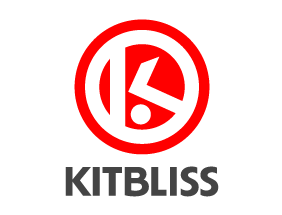The first full football season of the 1970's was a turning point in the history of the English game, for it was at this point that companies first started sponsoring club competitions. With ticket sales dwindling and hooliganism rising, it seemed football in England was going through a crisis of sorts, but that didn't stop corporate entities queueing up to put their name to the competitions which, it was hoped, would turn its fortunes around.
One such idea was the Ford Sporting League - not a competition in the traditional sense, moreover a one-off attempt at promoting and encouraging positive aspects of the game. The premise was simple: every time one of the 92 Football League clubs scored a goal during the 1970/71 season, they'd receive one point. When they scored away from home, they'd score two points. If a player received a yellow card, however, they'd be deducted five points, while a red card came with a ten-point penalty.
The team with the most points after 42 League games would earn a prize of £50,000, with smaller prizes of £2,500 given to the team with the most accumulated points at the end of each month. The money was to be spent not on new players or a refit for the Chairman's office but facilities to improve the match-day experience for the fans, such as a new stand or a scoreboard.
So, more goals and fewer bookings - that was the key, and just imagine what you could buy with all that lovely money. Taking inflation into account, £50,000 then was the equivalent of around £750,000 now. Such riches were highly desirable, especially for clubs at the lower end of the league spectrum, and one man had his eyes on the prize - Jimmy Frizzell.
A former full back turned coach of Oldham Athletic, Frizzell took the managerial reigns at Boundary Park in December 1969. His immediate priority was to steer Oldham away from the foot of Division Four, and this he did quickly and with great success. The end of the 1969/70 season saw The Latics finish mid-table and the following season they went one better by finishing third, thereby gaining promotion to Division Three.
Those of an impish disposition could argue that this was not his greatest achievement, however, for in that successful campaign of 1970/71, Oldham Athletic also won the Ford Sporting League. They did so by scoring 88 goals in their 46 games, just one less than the highest number across all four divisions set by Notts County, the team that topped Division Four that season. As for bookings, Oldham had only four in the 42-match period for which they were assessed, and sendings-off amounted to none.
Such was the clinical efficiency of Jimmy Frizzell's side during the 1970/71 season that they picked up not only the Ford Sporting League's £50,000 first prize, but also all of the £2,500 monthly prizes because their points total was always the highest. A grand total of £70,000 eventually found its way into Oldham Athletic's bank account and it wasn't long before
a new stand was built on the north side of Boundary Park for the fans to enjoy.
Just four bookings all season - that's all Oldham had. How does that stack up against modern-day football, and who might have won the Ford Sporting League last year, had it taken place? As ever, The Football Attic is on hand to crunch the numbers, make wild generalisations and stick two-fingers up to scientific accuracy...
'Ford Sporting League 2013/14'
Back in 1970/71, the Ford Sporting League gave every Football League club an equal chance by calculating its figures over the first 42 games for everyone that season. For First and Second Division teams, those were the
only 42 games of the season, however the remaining teams in Divisions Three and Four played 46, so the last four were discounted for them.
For our 2013/14 comparison, however, we haven't got the appropriate data for the cut-off point of 38 games which would have applied, so you'll just have to accept that the following calculations are based on the full season. In real terms, that matters very little because the champion team would have been Liverpool, and that despite playing eight games fewer than those clubs outside of the Premier League. The team that just pipped them to the title last season, Manchester City, finished 33 points behind them in second place on -99 with Southampton third on -124 points.
Yes, that's right - none of the top 92 clubs in English league football finished with a score above zero, but that's as much down to the punishing penalties given for yellow and red cards rather than anything else.
Certainly where goals scored are concerned, there doesn't seem to be much to choose between most of the teams, with the possible exception of Man City who easily scored more goals at home than the other 91 teams.
Specifically, it's the yellow cards that do all the damage in this system as Watford found out to their cost. They picked up 102 of them during the 2013/14 season, and that undoubtedly led to them finishing bottom of our Overall points table.
The highest-ranked Premier League team in the Yellow Cards table was Stoke City, and they're well down the list in 30th with 71.
On the Red Cards scale, Blackpool were the supreme champions last season - the only team to pick up ten in total. Sunderland were the highest-ranking Premier League team with seven red cards.
But all this statistical analysis merely distracts us from the tremendous achievement of Liverpool being the winners of our virtual Ford Sporting League for 2013/14. Will they spend their £750,000 prize on building a new stand at Anfield, we wonder?
(Source for data: www.soccerway.com, www.football-league.co.uk)
-- Chris Oakley






























